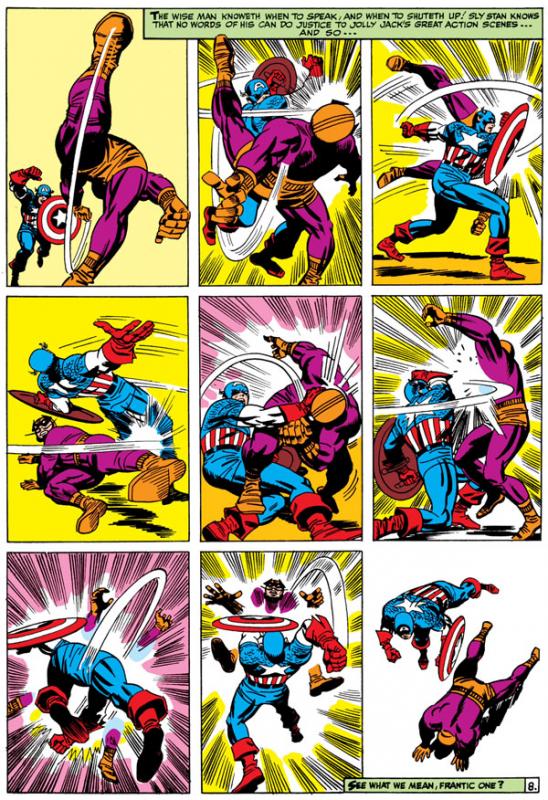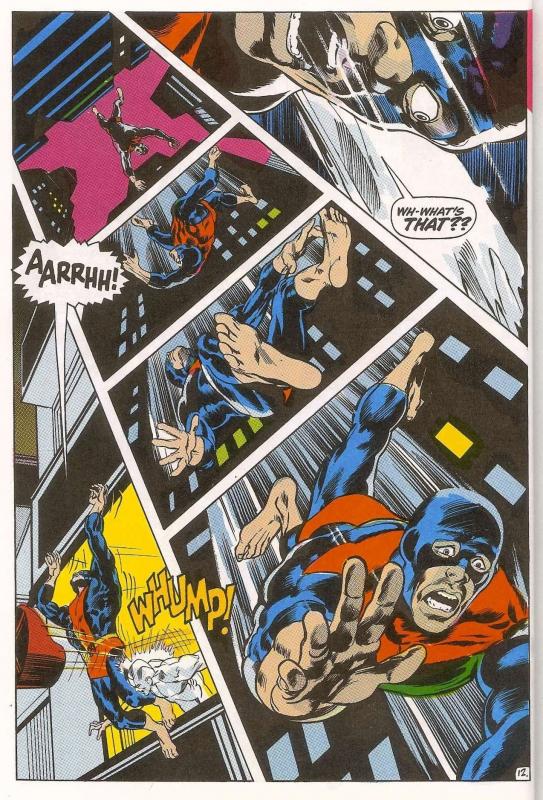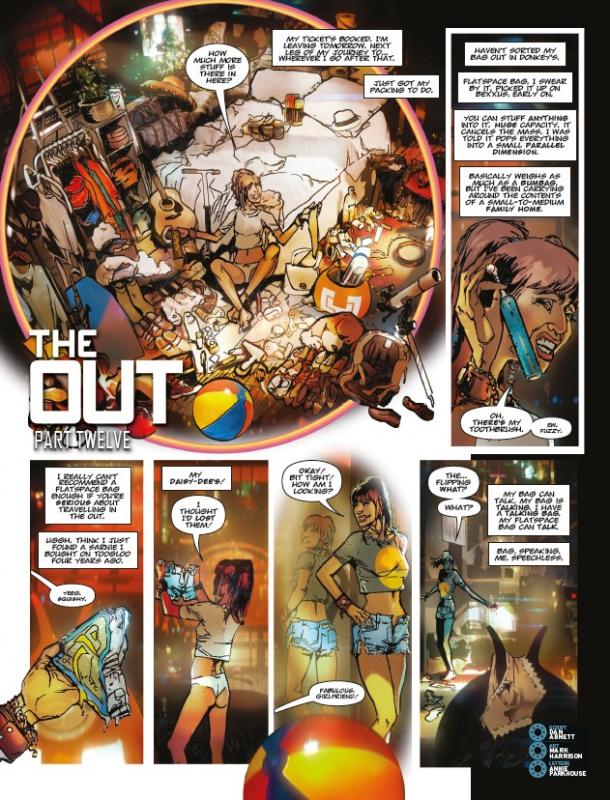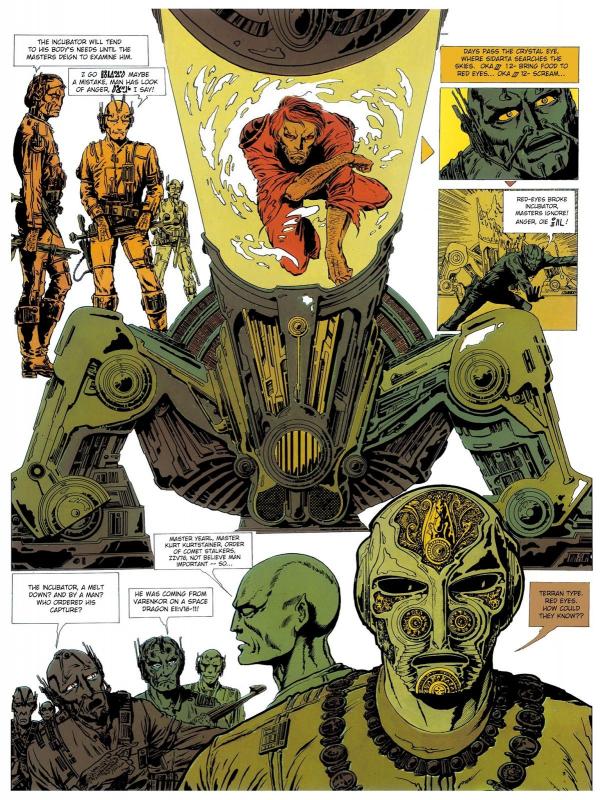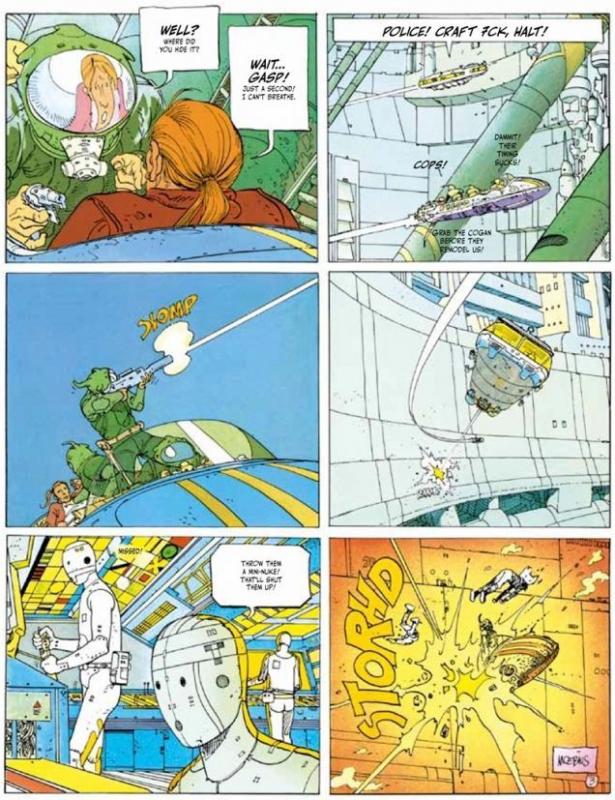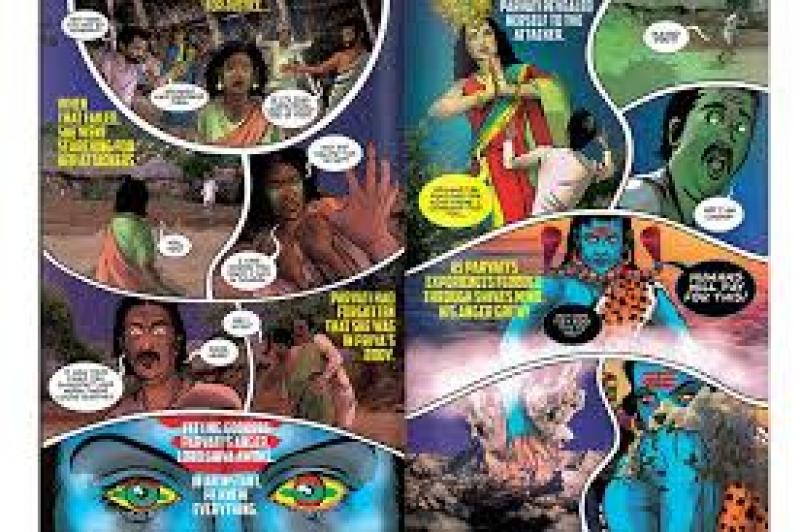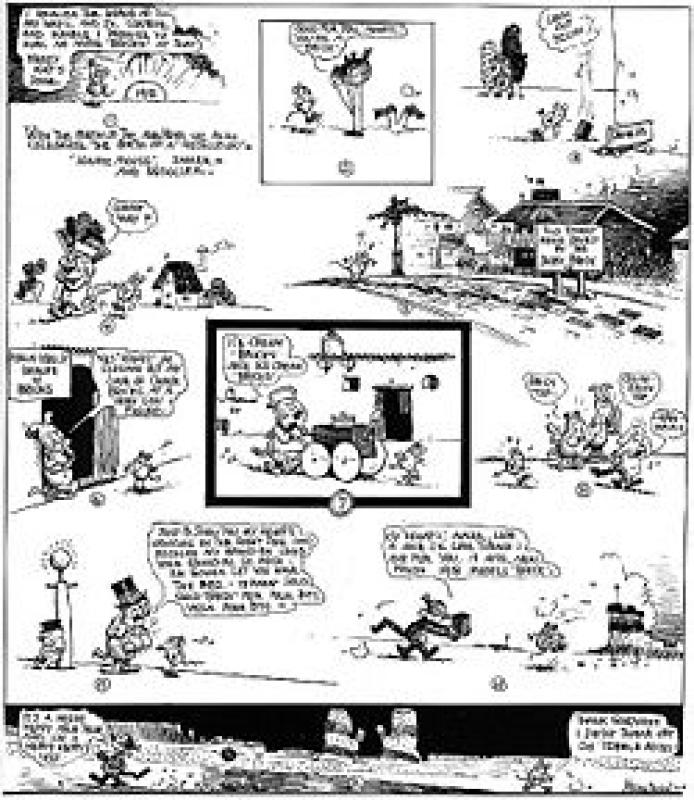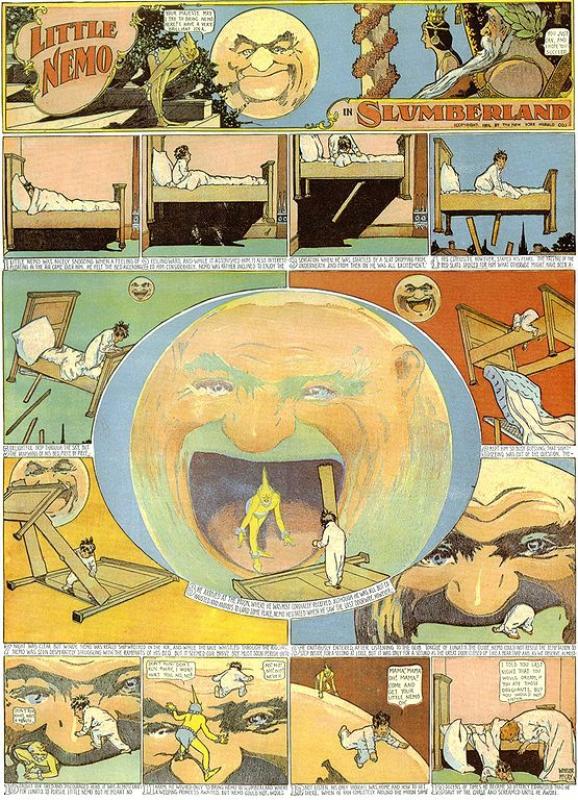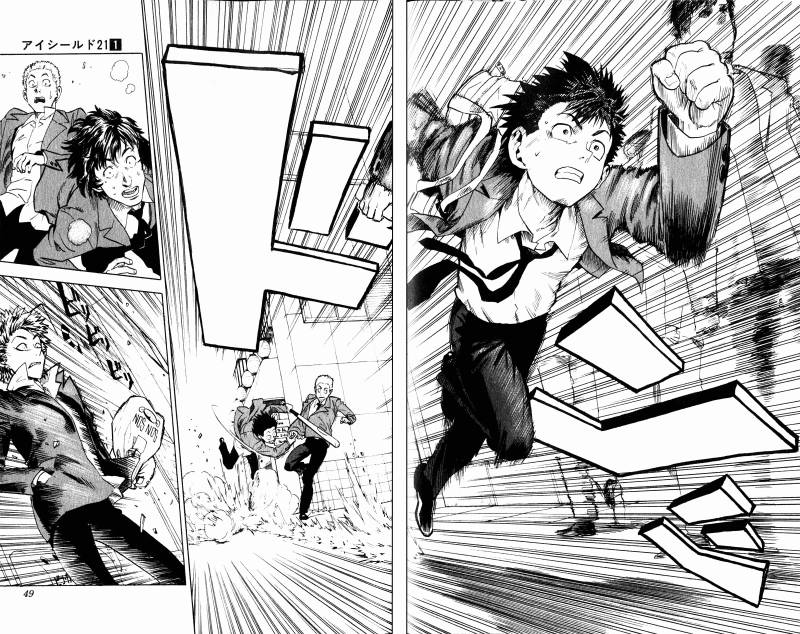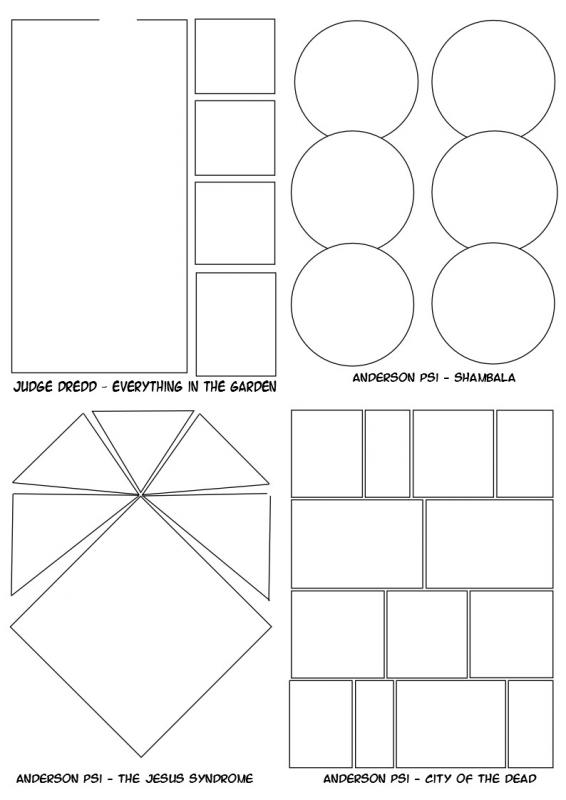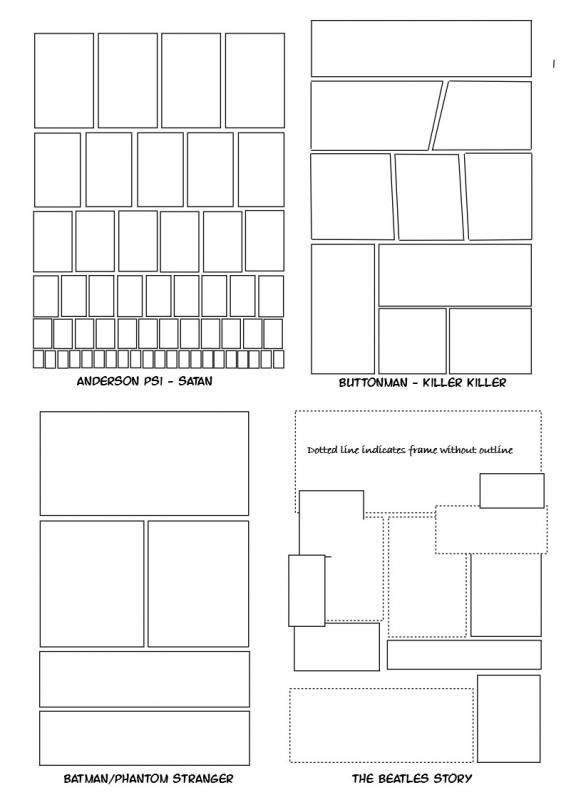11/01/2021
In the internet discussions about comic page frames, how to use them and how they are read, arrows are used to indicate where the eye goes. The idea being that the artist can determine the route the readers eye will take over the page. Well good luck with that.
Sight is a mechanical process where light is captured by the eye and transmitted to the brain. It is in the mind that the data it is processed, understood, interpreted and ’seen’. On beginning a page there is just a mass of verbal and visual data. Initially it is all taken in at once. If something in the bottom right-hand panel, or even something on the opposite page, catches the attention it is looked at, however briefly. Eyes will wander. One would inevitably be aware of the big explosion at the bottom of the page before the whispering in frame one. But really, no harm done. Nobody seeing in a comic an event ahead of where they are in the story would regard it as a spoiler as you might with alternative story telling methods. Unlike other narratives forms - prose, plays or film - comics are not a linear process. Comics come together when they are composed in the mind of the reader using the graphic and written elements provided. It is a mutually creative process between the creators and the audience with the reader mentally filling in the gaps between frames. The artist will design the page to make the story as clear to follow as possible but it not until the reader has ‘decided’ to make sense of the material, follow the rules, accept the guidance and follow the story as they surmise is intended that ‘reading’ begins. Just how immediate this is will depend on the reader and on the content.
The accompanying images are not a guide, just examples of alternatives.
The diagrams taken from my work are meant to illustrate that how framing is done depends on the needs of story, the information, movement, mood and moment it is intended to convey, and the wish for clarity for the reader. I did jigger about with frames shapes and layouts but that is in part just me and in part the material I was given to deal with.
Links - https://www.creativecomicart.com/comic-panels--layout.htm
http://makingcomics.spiltink.org/flow-the-eyelines/71
https://graphicuniverse.wordpress.com/2011/08/24/architecture-of-the-comics-page/
Artists in descending order - jack kirby - neil adams - mark Harrison - druiliet - mobius - vikas menon - George Herriman - Windsor MaCay. - Yusuke Murata All copyright acknowledged.

